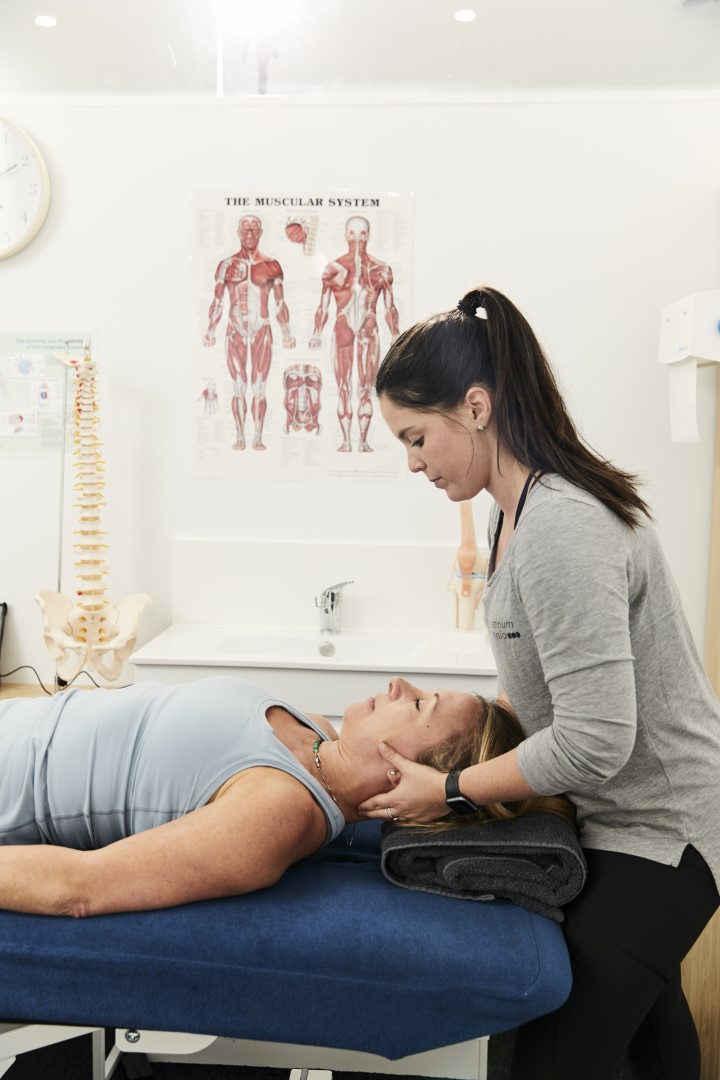BPPV and Dizziness
At Platinum Physio, we’re committed to getting you back to living an active and happy life.
BPPV and Dizziness Treatment at Platinum Physio
If you suffer from dizziness and positional vertigo our specially trained Physiotherapists treat your dizziness simply and effectively by performing gentle repositioning manoeuvres. This provides a quick and effective fix for dizziness caused by Vestibular Neuronitis, Acoustic Neuroma, Menieres Disease, Otoxicity, Stroke, Trauma or BPPV.
Check out our Vertigo Q&A video
What is BPPV?
BPPV is an acronym standing for:
- Benign: ‘harmless’ (non life-threatening)
- Paroxysmal: disturbance is brief, transient, and stereotypical
- Positional: always relating to head position to gravity
- Vertigo: a subjective feeling of whirling/spinning/dizziness etc
BPPV is a very common cause of vertigo/dizziness. It affects up to 2% of the population and accounts for 20-50% of all vertigo cases.
BOOK IN TO SEE A PHYSIOTHERAPIST TODAY
causes and symptoms of BPPV
What causes BPPV?
Tiny particles or debris (octoconia) become loosened in the balance organs of the ear (semicircular canals). Quick movements of the head dislodge the loose particles creating a ‘spinning’ sensation.
Most comonly BPPV has no known cause or trigger. However, sometimes a history of the following may be applicable: trauma, age related degeneration, medications, genetics, post operations, or a history of viral infection.
Common symptoms associated with BPPV include:
- Dizziness
- Feeling light headed
- Balance problems
- Nausea
Symptoms are usually very intense and short duration (under two minutes).
Book in to see a physiotherapist today
BPPV treatment
Treatment:
BPPV can often resolve without treatment. If symptoms do not improve, further intervention may be necessary.
- Particle repositioning manoeuvres: These are performed by qualified health professionals (such as physiotherapists), to reposition the dislodged particles, and are based on thorough subjective and objective assessment. You may be required to perform exercises at home. Clear instructions will be provided by your treating practitioner.
- Medications: Anti-nausea drugs may be prescribed by your GP to assist with associated nausea. This will not cure BPPV as it does not influence the dislodged particles. Drugs such as stemetil can affect your therapist’s ability to correctly assess for BPPV, and can also impede recovery, so are best ceased with medical advice.

Book in to see a physiotherapist today
post-treatment advice and instructions
- It is normal to feel off balance or ‘odd’ for 2-3 days post treatment
- Avoid provoking positions for 1-2 days, then slowly re-introduce into your day
- Remove trip hazards around the home, especially if you have concerns about falling or tripping
- Do not drive while symptomatic
- Most people settle within 1-3 sessions
Posterior Canal Instructions:
- Avoid sleeping or rolling onto your symptomatic RIGHT/ LEFT side
- Pillows can be used to avoid sleeping on your symptomatic side
- Use two pillows when sleeping for one night
Horizontal Canal Instructions:
- Use regular pillows when sleeping
- Sleep on your “good side:” RIGHT/ LEFT
- Again pillows can be used to prevent rolling to the affected side
OFFERING A RANGE OF TREATMENT OPTIONS TO SUIT YOUR NEEDS
BPPV and Dizziness Treatment at Platinum Physio
It is important that if your symptoms do not fit this pattern, do not improve, or worsen, that you seek further professional advice. If symptoms do not appear to be improving, your physiotherapist will recommend you return to your GP for further assessment, for onward referral if necessary.
There are many possible causes of dizziness, some of which can affect balance. At Platinum Physio we have a number of Balance and Mobility classes to assist with improving general balance, and rehabilitation post dizziness episodes. Your Physiotherapist will help guide you to the most appropriate class for your skill level, fitness, and goals.
